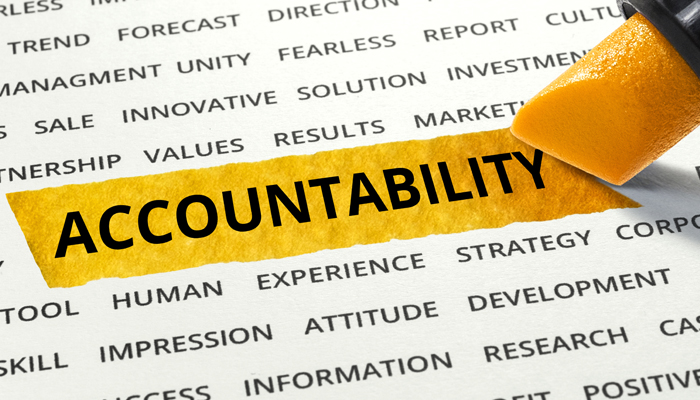
Are alignment, accountability and results important to you? Read about my framework to learn how to create a #CultureofAccountabilty!
Most organizational leaders want to build a culture of accountability. They desire to have commitment, engagement and alignment with strategic goals. They want to avoid the frustration, disappointment, breakdown and problems that arise when expectations are not met and results are not delivered.
I began work yesterday with a client organization and a team that also desires these same things. They are willing to do the work and put forth the effort to make this happen. A Culture of Accountability does not magically happen unfortunately.
I have a framework that enables organizations to achieve cultures of accountability. The components of that framework are the following.
The first is about clarifying EXPECTATIONS (quantifiably and specifically) and then getting agreement on them. Not just acknowledgement but explicit verbal agreement is extremely important. If you tell me that you have a policy that says I should show up to work at 8AM and I reply by saying “yes, I know that policy.” I’m NOT agreeing to your expectation. I’m acknowledging it. There is a big difference.
Besides being in agreement about expectations, team members must be in agreement about HOW they will complete the expectations. If I am a customer service representative and I agree to answer the phone within 2 rings (I’m meeting expectations), but I answer in a gruff voice, with a frustrated tone and say “Hello, what is it that you need today?” versus, “Hello, how may I help you today?” with a smile on my face and an air of eagerness in my voice, I will likely get different results. The HOW or the BEHAVIORAL DO’S & DON’TS should be linked to the expectations and agreed upon.
CONSEQUENCES should be explicitly agreed upon upfront as well. What will happen if I deliver on the Expectations (Recognition & Rewards) & what will happen if I don’t(Reprimands)?
HELPFUL FEEDBACK (#Straighttalk) is an important part of accountability as well & should be provided often. Silence or only focusing on what is wrong is not a form of helpful feedback.
Discerning a person’s READINESS (ability/skill/competence) & their WILLINGNESS (desire/motivation) are also important to consider & discuss when building cultures of accountability. Just because I enjoy & like cooking and entertaining doesn’t mean I am a culinary chef and can create gourmet meals for hundreds of guests. Ensure you have proof of ability to meet expectations by considering the past experiences of a team member. Their desire alone will not adequately enable them to meet expectations. The flip side of that coin is that if my abilities are commensurate with the expectations but I don’t DESIRE to do the job, then my engagement will quickly drop along with results. Ensuring SUPPORT and RESOURCES are available is important as well. This could be technology, additional staff, training or other means that are necessary for execution on tasks. I worked with a leader who was promoted to a Manager because he was very good at his technical craft. Unfortunately, there was no support (training) or resources (mentors) to help him understand how to lead teams of people. Despite his expertise as a technical genius, he failed miserably in his Management role.
Be very clear about AUTHORITY levels for each Expectation. How much power and authority does the team member have? There is usually a lot of confusion about AUTHORITY levels on teams which can create frustration, uncertainty and disappointment in the effort to meet expectations. There are different degrees of AUTHORITY. Ensure its properly given along with the responsibilities assigned.
Finally, when working with others towards building a culture of accountability, always remember that using your CONVERSATIONAL INTELLIGENCE can make the dialogues and exchanges between people a trust building experience, as well as, an extremely productive, motivating & meaningful experience that leads to DESIRED RESULTS.